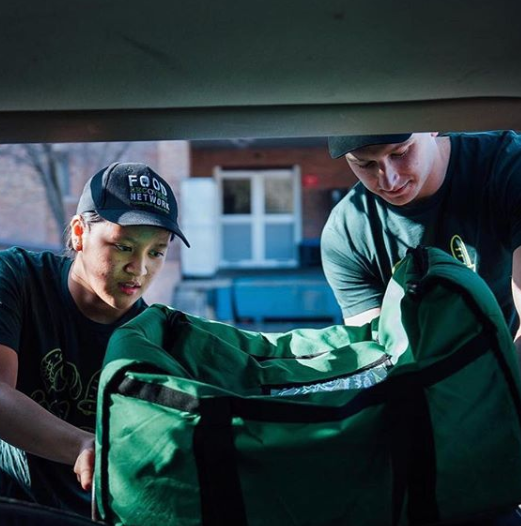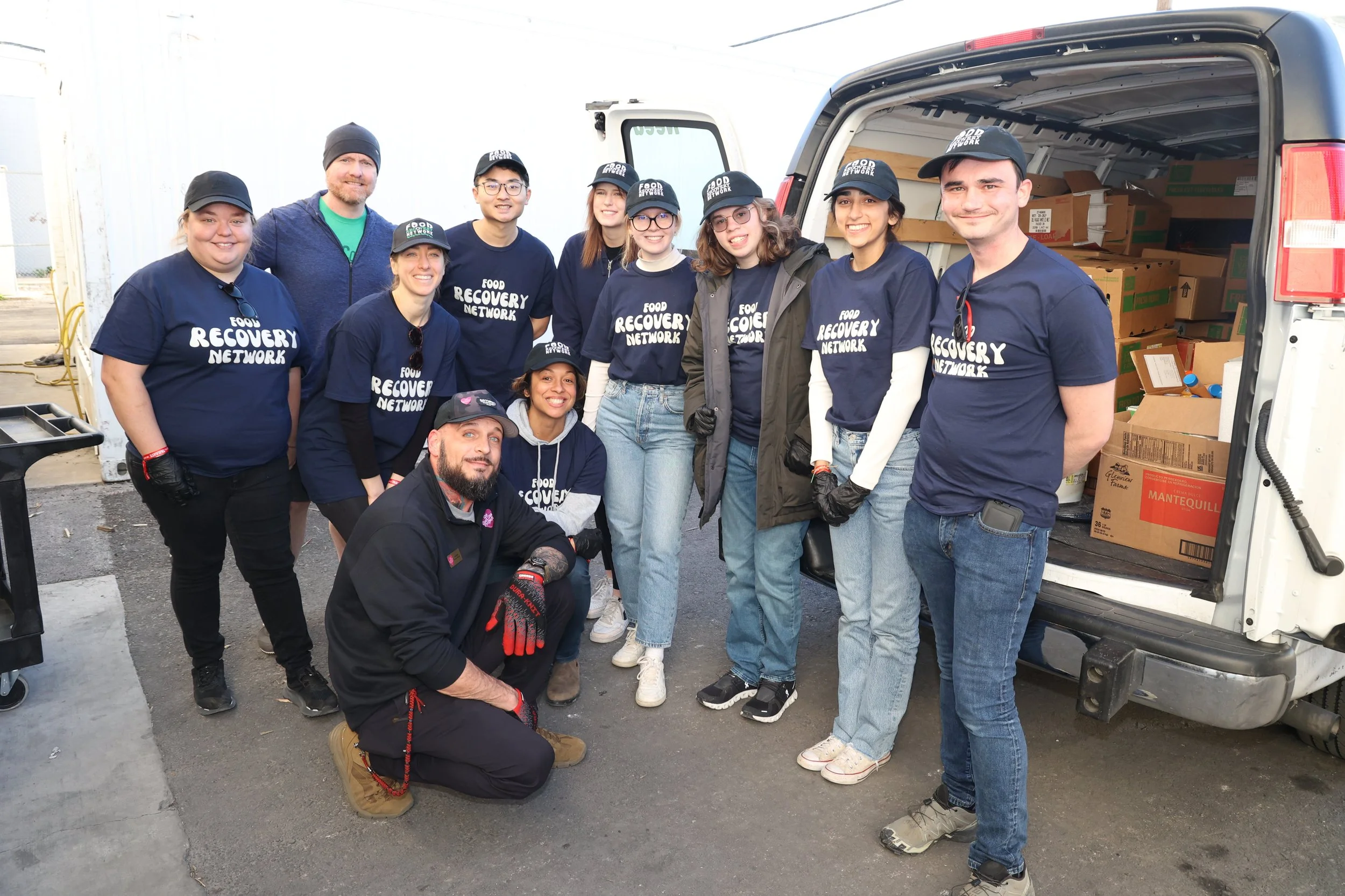I’ve killed a lot of plants. The succulents somehow stay alive, but the herbs, those never last more than a month. It’s disheartening to watch a basil plant shrivel up and die. The cilantro, the rosemary, the parsley -- all gone. When someone told me about Rooting DC, I realized that was exactly where I (and my anything-but-green thumb) needed to be. I even registered to volunteer sorting seeds before the forum, hoping to bring some good luck to my gardening.
DC Greens, the forum’s host, stacked the roster with major players in Washington, D.C.’s urban agriculture world. I could spend three paragraphs listing the awesome presenters, or you could just browse the program and find those who stand out to you. Many of the presentation notes will also be posted on the forum's website, which should be super handy for the garden I’m planning. That’s right: I’m going to GROW THINGS! (I’m laughing a little while writing this because it’s potentially an outlandish goal, but I want to give it a shot.)
I was only able to attend Rooting DC's morning sessions, but they were insightful and inspiring. The first was lead by Amanda Marino, food growing coordinator at Capital Area Food Bank, and she shared knowledge on starting and improving your garden game with as little money as possible. I learned where to get free compost and that you can save roughly $30 on 10 pounds of tomatoes if you grow your own.
After that, I went to a presentation by Josh Singer, the community garden specialist at DC Department of Parks and Recreation, on growing vegetables. I learned so much! Like the difference between determinate and indeterminate tomato plants (can you tell I like tomatoes?) and how to organize a garden bed so that it will produce food all year long. He also told me that there are nutrition in some weeds. It turns out that purslane is full of Omega 3 fatty acids and dandelions taste great in salads!
I’m so excited to sow some seeds and watch things grow! Only time will tell if I’ve turned over a new leaf and can keep them alive. Maybe one day I’ll be able to share pictures of the 10 pounds of tomatoes I grew from seed...
--
Some fellow coworkers were also able to go to Rooting DC, so I asked them if they’d share their thoughts. Below are the some other lessons our FRNds picked up at the forum.
Hannah G. is excited about the energy that exists behind food justice in her new home.
As a recent transplant to D.C., Rooting DC was an incredible experience I'd heard rumblings, but I didn't quite realize how many amazing things are happening here in sustainable food and food justice. D.C. is full of leaders working aggressively to change our food system from the inside and out -- and it's working. Attending Rooting DC, I learned that we're on our way to building a more sustainable, inclusive food system here in the District. I can't wait to get more involved!
---
Cassidy was inspired by the diversity of the speakers and how well they represented the demographic of our city.
Of the sessions I attended, I found "Food Justice: 7 Talks Each in 7 Minutes" the most influential. It highlighted the work of different organizations and individuals changing the ways people approach issues of food access in the District. Speakers included Jeremiah Lowery of DC Fair Food, Chris Bradshaw of Dreaming out Loud (catch him at the NFRD in April) and Dominique Hazzard of DC Greens, among others. Refreshingly, most of the speakers were people of color. When it comes to issues of food insecurity in our city, theirs are the voices that must be heard because they are the most reflective of the communities in which these issues are most deeply realized. One of the speakers, Brandy Brooks, remarked "we are the ones who have been doing this work for decades," yet she also mentioned that it's still rare to see people of color in decision-making roles within the food justice movement. Everyone has a part to play in affecting a more equitable city, but we should look to long-time residents to lead us toward that future and here in the Chocolate City, that typically means the leaders won't look like me.
---
Mika learned quite a few things to make her successful green thumb even better!
One session I attended was on growing gardens in challenging spaces, put on by Love & Carrots. Here are some tips that they provided:
1. Sunlight is the most important factor to consider when choosing a growing site. Don't just guess -- track and record how many hours in the day your growing site will receive sun and compare it to the needs of different crops.
2. If you have limited space in sunny areas, utilize wall space to grow food up on trellises.
3. If you have limited space, plant foods that will provide a continuous harvest (lettuce, kale, tomatoes, etc.) instead of produce that takes a while to cultivate one carrot/beet/radish. That way you will maximize harvest throughout the season.
Another session I went to was on MUSHROOMS!
It reaffirmed everything I love about them -- they're literally magical and most plants couldn't grow without them. They help distribute nutrients between different organisms in an ecosystem to maintain the best ecological balance. They have a lot of medicinal properties and are the only produce you can get Vitamin D from (tip: leave mushrooms out in the sun for an hour before you cook them and you'll get more Vitamin D from them!).
It's actually pretty easy to grow your own mushrooms -- you just need a sterile substrate (cardboard, straw, woodchips, sawdust) to grow them on. To inoculate the substrate, you can actually just break apart a mushroom on a sterile piece of cardboard (boil it to sterilize it) and put them in a plastic bag. You can check out info from Good Sense Farm and MycoSymbiotics for more resources!
---
Sara’s a fan of Rooting DC, and this year she focused on food systems and access in our area.
This was my third visit to Rooting DC, and because my backyard is fully shaded and full of vicious, blood-sucking vampires (did I say vampires? I meant mosquitoes) I attended not to boost my gardening skill-set but to find out more about the DC food system and how I can get involved in making it stronger and better. I participated in an interactive session to help shape priorities for the DC Food Policy Council, I got a sneak peek of Xavier Brown's incredible work with The Green Scheme, a local nonprofit focused on community healing through gardening and environmental education [you can catch him at the NFRD!], and I learned more about the work of UDC and Arcadia Center for Sustainable Food & Agriculture to bring local produce to food deserts via Urban Food Hubs and Mobile Markets. DC has so many problems related to food access and it was inspiring to hear about so many creative, people-powered solutions.
Like what you read? Interested in learning more about the DC food community? Find out more about Rooting DC on their blog, Facebook, and Twitter.











